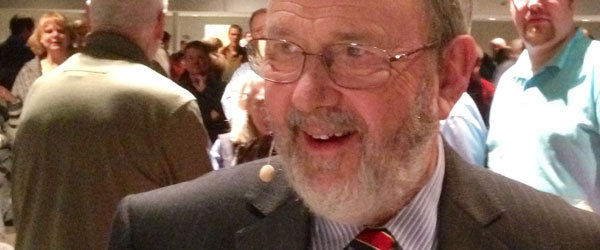
The church is founded on the word of the Bible, and the mission of the church is central in the biblical narrative. Calvin Theological Seminary decided to take three years to explore the missional aspect of the Scripture and of the church. In 2013 the invitation is to look at “A Missional Reading of Scripture,” with scholars such as N.T. Wright and Chris Wright, Michael Goheen and Darrel Guder. In 2014 the topic would be “missional preaching” and in 2015 would be on “missional living,” following the move from the Scripture to preaching and ending in praxis or daily patterns for life.
The keynote speakers for this year are names with mission and biblical research backgrounds. The two English scholars with the same last name, Wright, come to Grand Rapids from the British Isles, Tom Wright from University of St. Andrews, where he is a Research Professor, and Chris Wright is the International Director of the Langham Partnership, taking the important role Rev. John R.W. Stott had for many years. Mike Goheen is Professor of Missiology at Calvin Seminary, and Darrel Guder is Professor of Missional and Ecumenical Theology at Princeton Seminary.
From the lectures it became clear that “missional hermeneutic is a way of reading Scripture in which mission is a central interpretive key that unlocks the whole narrative of Scripture. It does not simply study the theme of mission but reads the whole of the biblical canon with mission as one of its central themes.”
In a more public lecture format Tom Wright on Wednesday night at Mars Hill Church in Grandville, he looked at the broader picture of the entire Old Testament narrative as the unfolding of God’s Project into which each individual person is embedded upon salvation. “We’re saved to be part of God’s Project,” Wright said, and therefore, and maybe picking on A. Kuyper’s language, we’re “people through which God’s generous love flows to every square inch of this universe.” Reading and re-reading the Old Testament story through the eyes of this missional lens reminds us that “we’re people of the new creation” that one day will be set free.
During the Q&A session at the end of his talk at Mars Hill Church there were few answers that are worth noting. First, I thought that Wright’s analysis of the progressive ideas launched by the French Revolution was really helpful. The Atheistic revolution that has taken place “in the last 200 years” has proven that human beings are becoming tyrants who are doing “unspeakable things in the name of progress.” The Utopian society has “not arrived on schedule,” Wright pointed out. Furthermore, the notion of progress has let Atheism down into the last century, both in Marxism and the Nazi (German National Socialist Party).
Recognizing the total failure of the socialist or egalitarian systems imposed under the name of Marx or Nazi, the hope for the world is in God’s mission and his plan to use the human communities of faith to transform our towns and cities. The Old Testament tabernacle was the place of God’s glory, but a missional reading would show that the Spirit is sending us into the world to reflect God’s glory to the world and to reflect back to God the worshipping and faithful community of hope on earth. The people of God are on a mission. We are called to even use our imagination and creativity, just as the classic music composers did, Bach and Hendel, highlighting the glory of God to the world again and again.
This conference explores such teams in our Scripture reading, pointing to a missional hermeneutic with implications for missional praxis of the church, specifically preaching (2014), and the life of the local congregation (2015).



